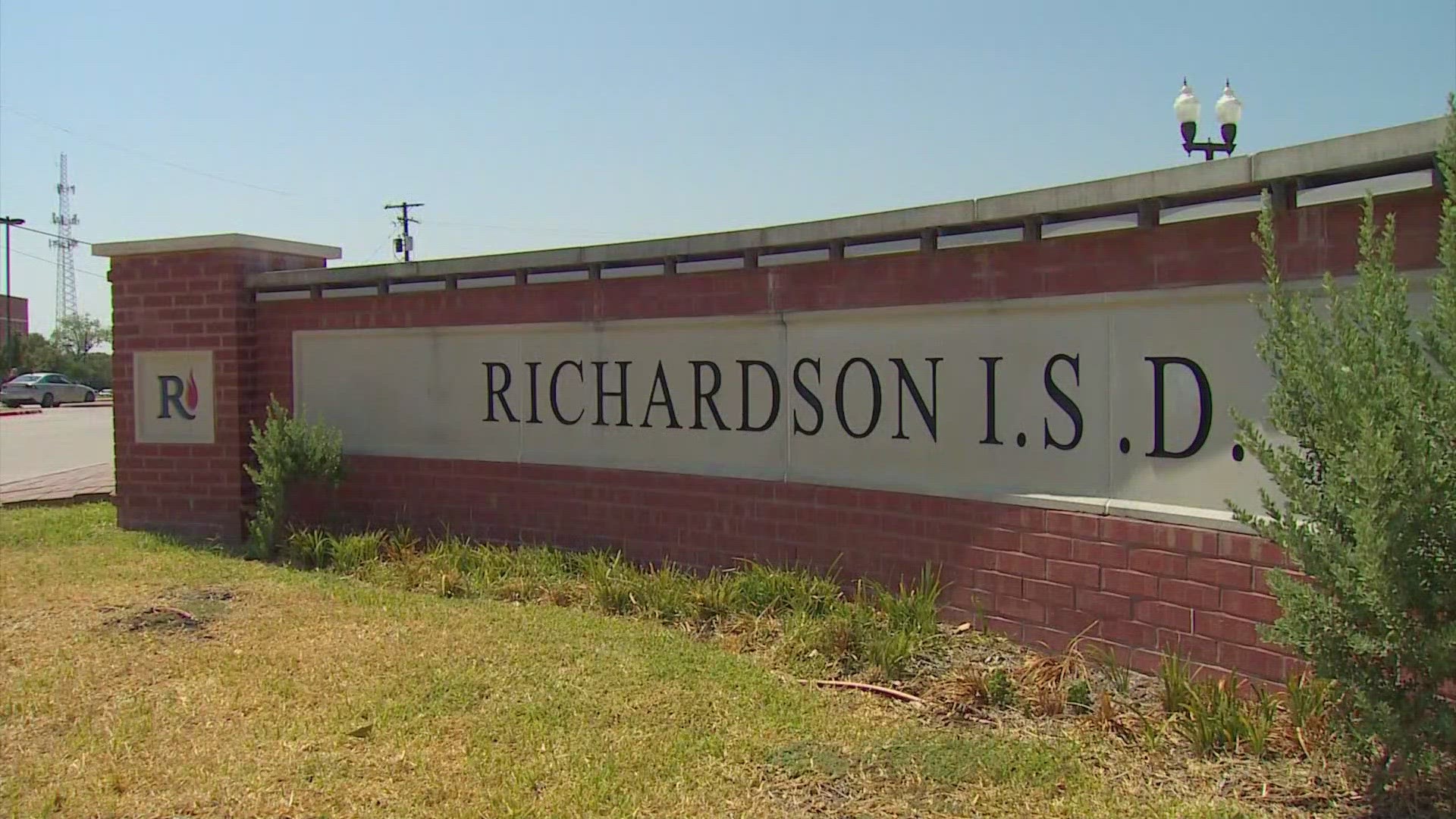RICHARDSON, Texas — Richardson ISD is struggling to meet a new state law adding security to school districts.
Thursday evening, the district’s school board is expected to vote to ask the Texas Education Agency for a waiver on House Bill 3, which requires school districts to have an armed guard at every campus.
Richardson ISD’s reasoning is that there aren’t enough qualified personnel to hire.
Both the district superintendent and school board members declined to comment on the vote Thursday.
Chief Bill Avera heads Jacksonville ISD’s police department and sits on the Texas School Safety Board. He also helped meet with lawmakers to write HB 3 following the mass shooting at Robb Elementary in Uvalde where 19 students and 2 teachers were killed.
“It’s very personal any time that happens to any of us because you wonder what if,” Avera said. “The what-ifs get you.”
Even Avera’s district is asking for a waiver.
“I have three vacancies here myself that I’m trying to fill,” he said. “We all are competing across the region for the same people.”
Richardson ISD starts back Monday and says it’ll still have security with SROs on every secondary campus and off-duty officers at some elementary schools, but it’s the addition that’s the issue.
Funding has also been a major challenge for districts.
Earlier this week, Lewisville ISD told WFAA it’s adding a new guard program at a cost of $4 million but lawmakers allocated just $1.5 million to them for security.
“It certainly was disappointing,” Avera said. “The first time the governor will allow it on a special call or next session we’ll be back down there to rectify that.”
Avera’s sales pitch to potential officers is that SRO jobs don’t work weekends or overnights and have a nice summer break.
While it’s asking for a waiver, lawmakers didn’t add any punishment to the law for districts that don’t comply.
“While there won’t be any negative connotation to not doing it, the districts simply cannot choose to do nothing,” Avera said.

